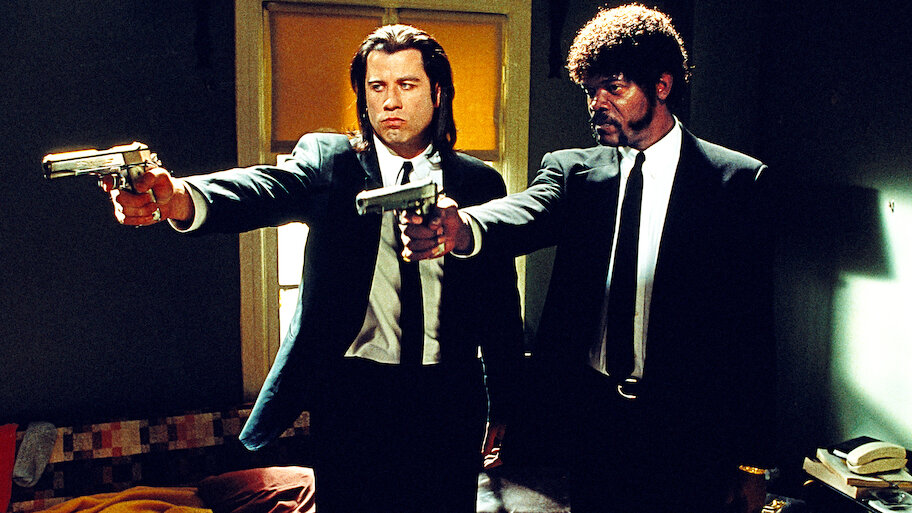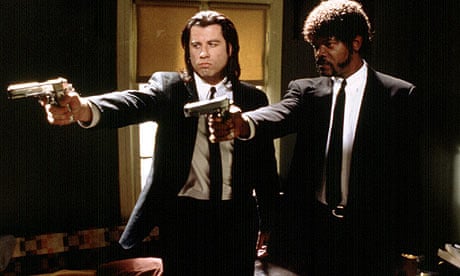Pulp Fiction (1994), directed by Quentin Tarantino, is a landmark crime film known for its nonlinear storytelling, sharp dialogue, and intertwining narratives that explore violence, redemption, and fate in Los Angeles’s criminal underworld.

The movie weaves together several interconnected stories:
- Vincent Vega and Jules Winnfield (John Travolta and Samuel L. Jackson) are hitmen working for mob boss Marsellus Wallace (Ving Rhames). The film opens with them retrieving a mysterious briefcase for Wallace. Their casual, often humorous conversations about fast food, morality, and everyday life contrast sharply with the violence of their profession. During one encounter, Jules has a spiritual awakening when he survives a near-death situation, leading him to reconsider his life, while Vincent continues down a reckless path.
- Vincent and Mia Wallace (Uma Thurman): Marsellus asks Vincent to escort his wife Mia while he’s out of town. Their night out includes witty banter, a dance contest, and an overdose scare when Mia accidentally snorts heroin. Vincent saves her life with an adrenaline shot, further entangling himself in dangerous loyalties.
- Butch Coolidge (Bruce Willis), an aging boxer, is paid by Marsellus to throw a fight but double-crosses him by winning instead and fleeing with the money. This sparks a violent chase through Los Angeles, culminating in an infamous sequence where both Butch and Marsellus are captured by sadistic criminals in a pawnshop. Forced into a nightmare of brutality, Butch ultimately saves Marsellus, earning his freedom.
- The Bonnie Situation: After Vincent and Jules accidentally kill a man in their car, they scramble to clean up the mess before Jules’s friend’s wife comes home. They enlist the help of Winston “The Wolf” Wolfe (Harvey Keitel), a professional fixer. This sequence blends dark humor with suspense, showing the absurdity of violence and its consequences.
- Pumpkin and Honey Bunny (Tim Roth and Amanda Plummer): The film opens and closes with a young couple deciding to rob a diner. Their story collides with Jules’s when he happens to be eating there during the robbery. Instead of resorting to violence, Jules spares them, reaffirming his decision to walk away from his life as a hitman.
The film’s nonlinear structure shuffles time, creating connections between characters and events while emphasizing themes of chance, loyalty, and transformation.

Pulp Fiction is more than just a crime movie—it’s a stylish blend of pop culture, philosophy, and raw storytelling. It redefined modern cinema, earning Tarantino the Palme d’Or at Cannes and becoming one of the most influential films of the 1990s.




